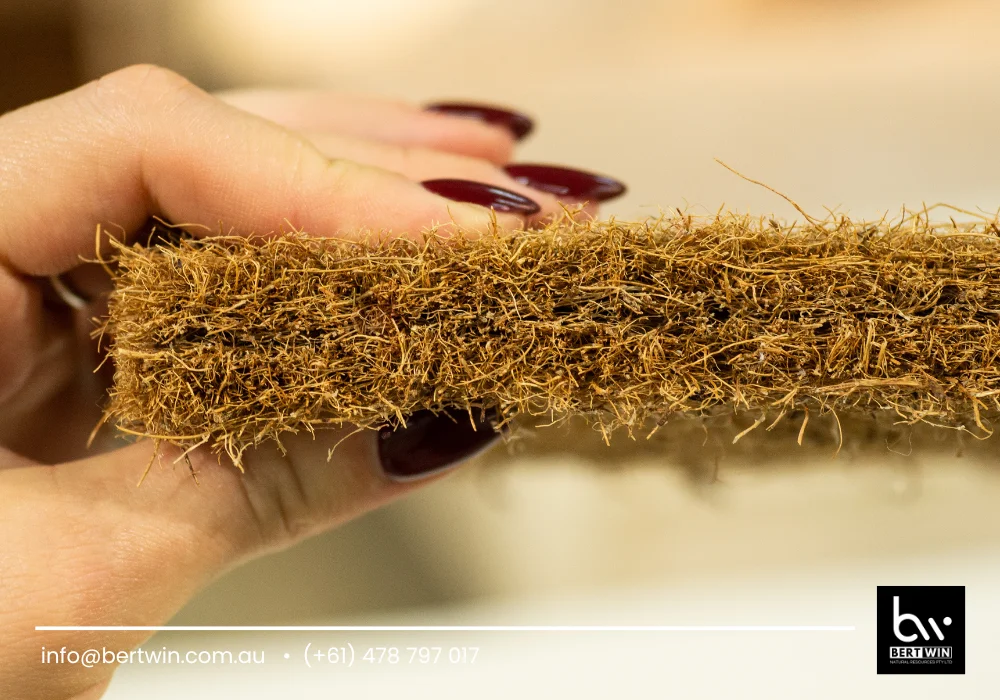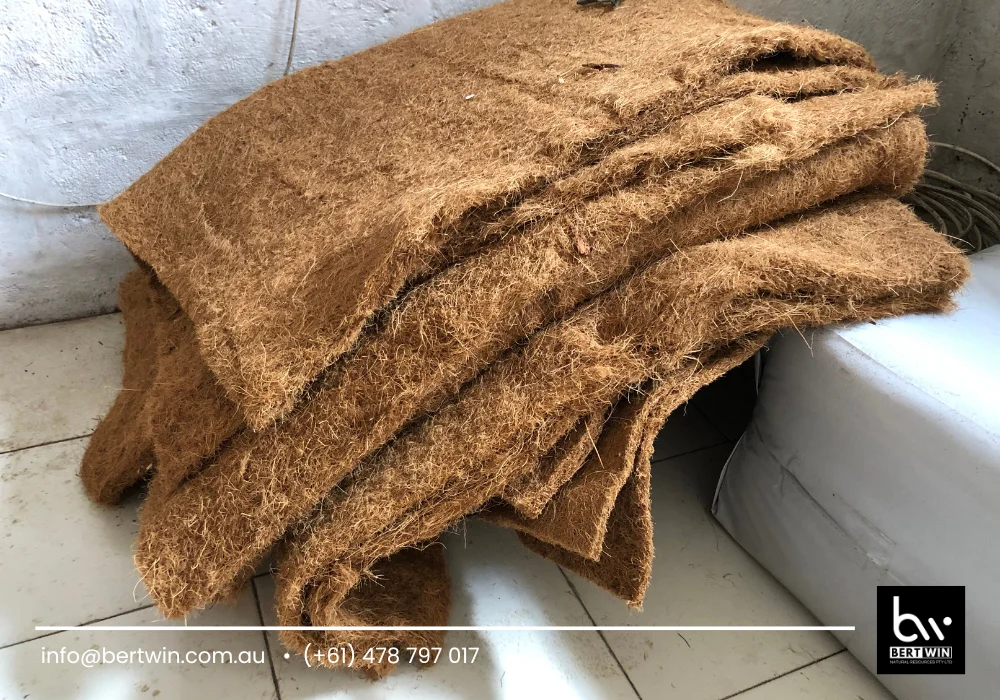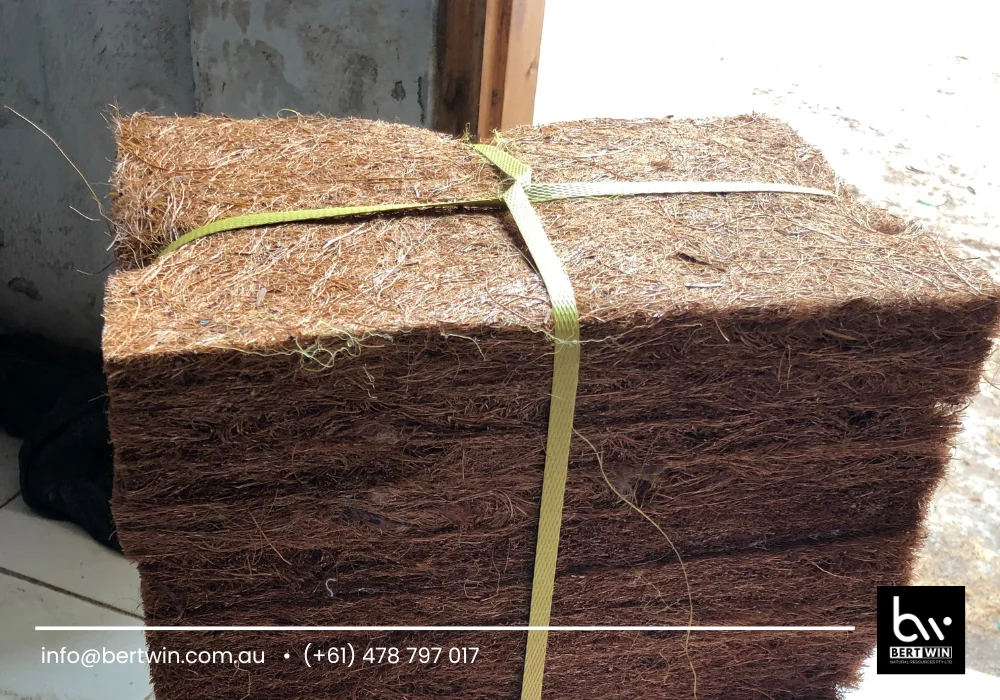How to use coir sheet effectively is essential for maximizing its benefits in different applications, including gardening, agriculture, construction, and more. Coir sheets, made from coconut husks, are known for their durability, water retention, and eco-friendly properties. This article will explore how to use coir sheet for various purposes, address common problems that may arise, and provide solutions to ensure optimal use of this versatile material.

What is Coir Sheet?
How to use coir sheet begins with understanding what coir sheets are and why they are so useful. Coir sheets are made from the fibrous husk of the coconut. These sheets are processed to be flexible, durable, and highly absorbent, making them suitable for a wide range of applications. Coir sheets are biodegradable, sustainable, and offer an eco-friendly alternative to synthetic materials.
Coir sheets are widely used in horticulture, agriculture, and construction. They are particularly valuable in preventing soil erosion, retaining moisture for plants, and protecting plant roots. Additionally, coir sheets are used in construction projects to stabilize soil and prevent erosion in areas prone to heavy rainfall.
Common Uses of Coir Sheet and How to Solve Associated Problems
While how to use coir sheet may seem straightforward, there are some common issues that users face. These include degradation, poor water retention in specific environments, and pest infestation. Below are solutions to address these challenges:
1. Coir Sheets in Gardening and Agriculture
Coir sheets are commonly used in gardening to protect plants, control weeds, and retain moisture in the soil. They are often placed around plants or laid over garden beds to maintain optimal growing conditions. However, a common issue is that coir sheets can degrade quickly if exposed to excessive sunlight or heavy rainfall, especially in tropical climates.
Solution: To extend the lifespan of coir sheets in gardening, it is essential to choose thicker sheets or layers of coir that are better equipped to withstand harsh weather conditions. Additionally, adding a layer of mulch or covering the coir sheet with another material, such as a geo-textile fabric, can help protect the coir sheet from excessive degradation. Regularly rotating the coir sheets or replacing them when needed will also help maintain their effectiveness.
2. Water Retention in Dry Climates
In regions with dry climates, how to use coir sheet may present challenges regarding water retention. While coir is known for its ability to retain moisture, it may not be enough in extremely dry conditions, especially for plants that require consistent hydration.
Solution: To enhance water retention, coir sheets can be combined with other water-retaining materials, such as compost or organic mulch. These materials help the coir sheets hold moisture for longer periods, ensuring that plants receive the hydration they need. Additionally, setting up an irrigation system, such as drip irrigation, can further ensure that the soil remains adequately moist, even in dry conditions.
3. Coir Sheets for Erosion Control in Construction

Coir sheets are frequently used in construction projects, particularly for soil erosion control. They are commonly laid on slopes, riverbanks, or areas prone to soil movement. However, a significant challenge is that coir sheets alone may not be enough to prevent erosion in areas exposed to heavy rain or extreme weather.
Solution: For more effective erosion control, coir sheets should be combined with other materials like geo-textiles, biodegradable netting, or mulch. These materials work together to strengthen the coir sheet, ensuring better soil stabilization. Additionally, planting vegetation on top of the coir sheets helps reinforce the soil and prevent erosion. Regular monitoring and maintenance are essential to ensure that the coir sheets remain effective over time.
4. Pest Infestation and Mold Growth
As organic materials, coir sheets can be susceptible to pest infestation and mold growth, especially when they are exposed to moisture for extended periods. This is a particular concern for agricultural and horticultural applications, where pests can damage crops or reduce the effectiveness of the coir sheet.
Solution: To prevent mold and pest problems, it is important to keep coir sheets dry and well-ventilated before use. In agricultural settings, make sure that the coir sheets are not over-saturated with water and that they are replaced regularly if they show signs of mold growth or pest damage. Additionally, you can treat the coir sheets with natural, non-toxic pesticides or fungicides to help prevent mold and pest infestations. Keeping the surrounding environment clean and free of debris can also reduce the likelihood of pests.
5. Cost and Availability of Coir Sheets
While coir sheets offer many benefits, the cost and availability of this material can sometimes be an obstacle, particularly for large-scale projects. In regions where coconut production is limited, the price of coir sheets may be higher, and the material may not be as readily accessible.
Solution: To mitigate the cost, consider purchasing coir sheets in bulk or directly from suppliers who can offer competitive pricing. Working with local distributors who have a steady supply of coir sheets can help reduce transportation costs and ensure consistent availability. If coir sheets are not available locally, consider alternative materials that offer similar benefits, such as coir-based products or other natural fibers like jute.

Conclusion
How to use coir sheet effectively depends on the application and understanding the material’s strengths and limitations. Whether used in gardening, agriculture, construction, or erosion control, coir sheets offer an eco-friendly, sustainable solution that can help maintain soil moisture, prevent erosion, and support plant growth. By addressing common problems such as degradation, water retention, and pest infestation, users can maximize the benefits of coir sheets and enhance their effectiveness in various applications.
For further information on how to use coir sheet or to purchase high-quality coir sheet products, feel free to contact WhatsApp at (+61) 478797017 or via email at info@bertwin.com.au. We are here to assist with all your coir sheet needs.
